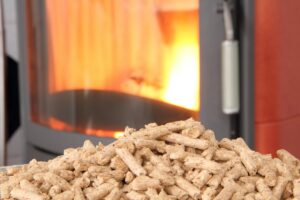Bioenergy Europe: internal EU pellet production leapt in 2023

The geopolitical crisis and the EU sanctions against Russia made 2022 an exceptional year for the pellet market, according to the trade association.
Fluctuations in pellet prices significantly grew due to flow disruptions from Russia, Belarus and Ukraine.
Responding to this supply scarcity, many EU countries reduced their pellet exports and increased their internal production from 19,83 million tons in 2021 to over 20,5 million tons in 2022 (44% of the world’s pellet production), thanks to the opening of 55 new production sites.
The European Union (EU) maintains its status as world leader with 52% of total consumption.
Pellets are an important component of the defossilisation of the EU economy, added Bioenergy Europe. It is a sustainable solution that already displaces fossil fuels and contributes to the EU’s climate and energy goals.
Considering the demand in the residential and industrial sectors, there is still significant room for expansion of sustainable pellet production in Europe, the association went on to say.
Government incentives and subsidies for renewable energy can stimulate pellet consumption and some European countries are already implementing policies to promote the use of biomass as part of their decarbonisation strategies.
In addition, advancements in pellet production technology, such as improved pelletising processes and higher-quality standards, can enhance the efficiency and competitiveness of the pellet industry and boost European production.
In this regard, the ENplus® fuel quality certification scheme has been a success for over ten years, ensuring wood pellet quality by guaranteeing it over the entire supply chain (i.e. from production to end-user delivery), according to Bioenergy Europe.
In 2022, around 13,6 million tons of pellets were certified by the system in 50 countries all over the world.
“By harnessing the potential of pellets, we substitute fossil fuels and strengthen our energy security. By relying on a resource that is readily available within our borders, we enhance our resilience to external disruptions, ensuring a stable and consistent energy supply for our citizens,” stated Bioenergy Europe secretary general Jean-Marc Jossart.


















